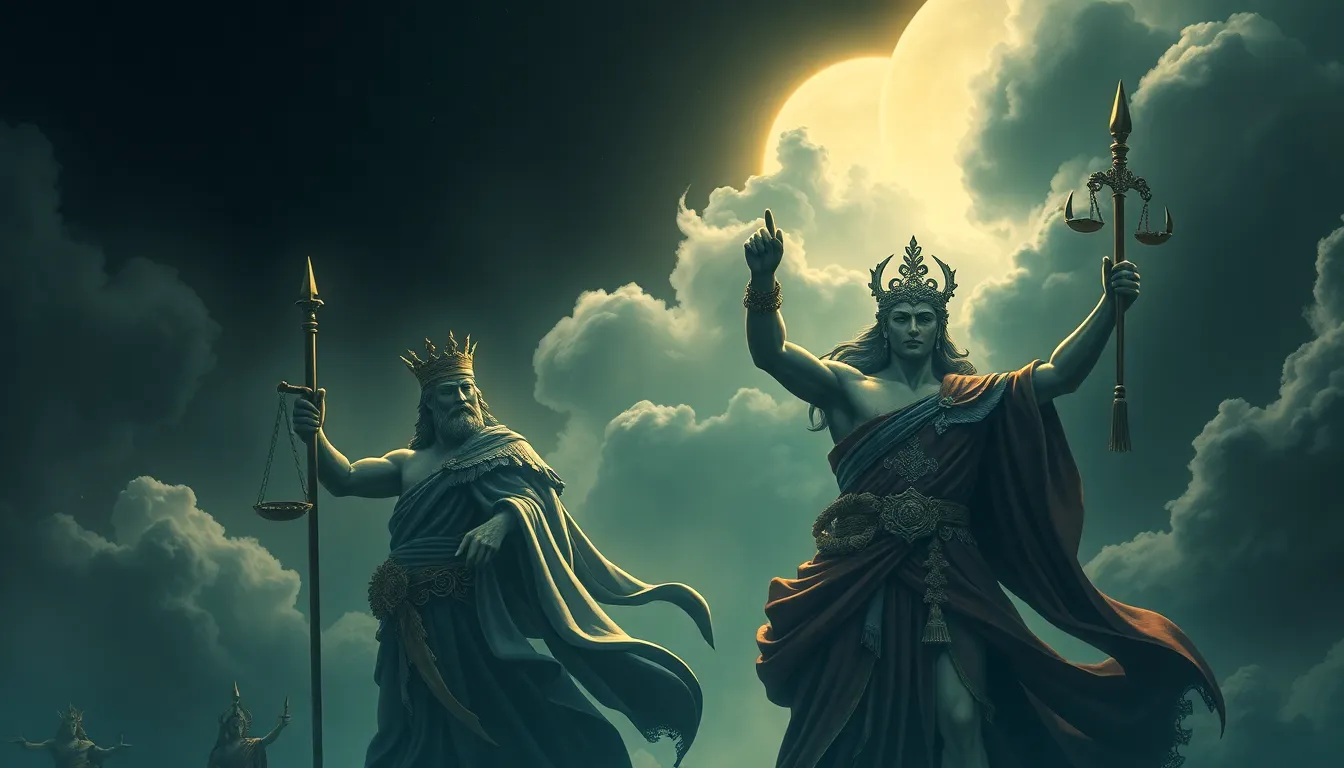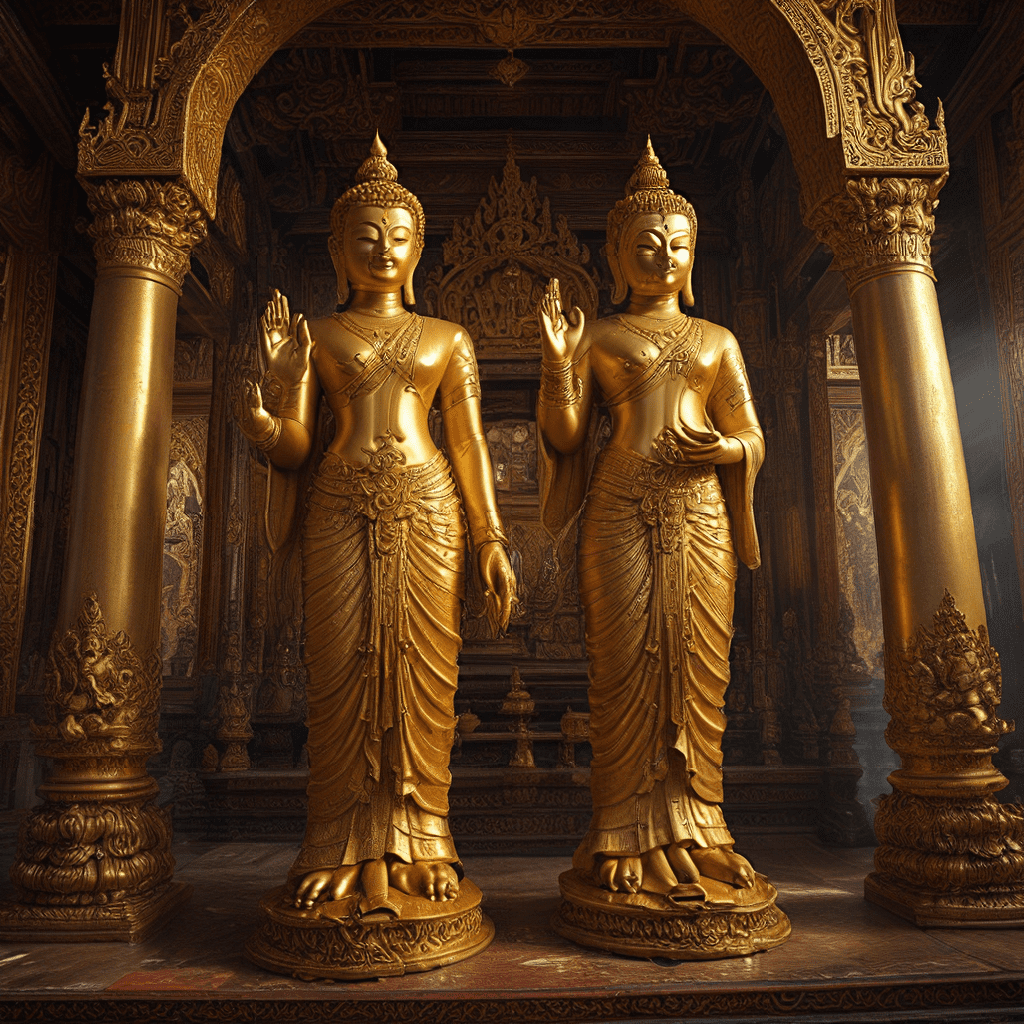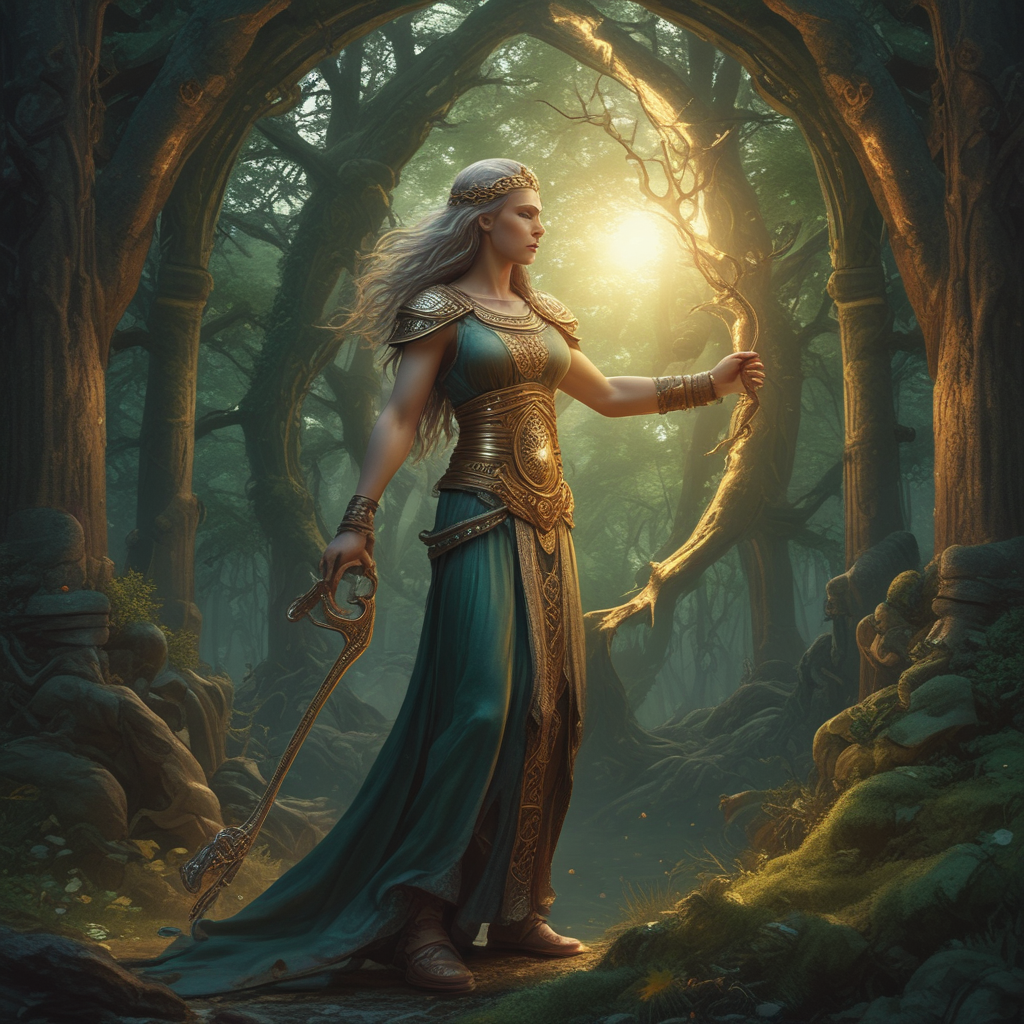Cultural Heroes: Mythical Figures of Justice and Equality
I. Introduction
Cultural heroes are iconic figures within a society that embody the values, aspirations, and struggles of their people. These characters often emerge from folklore, mythology, or literature and serve as embodiments of virtues that societies hold dear.
Justice and equality are central themes in many cultural narratives, shaping the moral compass of societies and guiding social interactions. Throughout history, these ideals have inspired countless stories and characters that resonate with the human experience.
This article will explore mythical figures that represent justice and equality, examining their significance across various cultures and how they continue to influence modern society.
II. The Concept of Justice and Equality in Mythology
The themes of justice and equality have historical roots in various cultures, reflecting the human quest for fairness and balance. These concepts are often personified in mythical figures, serving to teach and reinforce societal values.
Mythical figures play a crucial role in shaping societal norms, illustrating the principles of justice and equality through their narratives. Examples of these themes can be found across cultures:
- The Greek goddess Themis, representing divine order and law.
- The African trickster figure Anansi, who uses wit to address inequality.
- The Norse god Baldr, symbolizing purity and fairness.
III. Prominent Mythical Figures of Justice
A. Athena: The Greek Goddess of Wisdom and Warfare
Athena is often depicted as a warrior goddess, but she is also revered for her wisdom and fairness. As the goddess of justice, she symbolizes the balance between strength and intellect.
- Symbolism of Justice: Athena represents the ideal of justice achieved through wisdom and rational thought.
- Influence on Modern Concepts of Fairness: Her legacy continues to influence modern legal systems, where wisdom and fairness are paramount.
B. The Egyptian Ma’at: Goddess of Truth and Order
Ma’at is the ancient Egyptian goddess who embodies truth, balance, and cosmic order. Her principles were essential to the functioning of society and the administration of justice.
- Principles of Balance and Justice in Ancient Egypt: Ma’at’s teachings emphasized the importance of truth and balance in maintaining societal harmony.
- Ma’at’s Legacy in Contemporary Justice Systems: Many legal systems today still reflect her ideals of truth and fairness in judicial proceedings.
IV. Celebrated Mythical Figures of Equality
A. Robin Hood: The Outlaw Champion of the Poor
Robin Hood is a legendary figure who has become synonymous with the fight for economic equality. His story resonates with audiences as a representation of the struggle against oppression.
- The Legend and its Social Implications: Robin Hood’s tale of stealing from the rich to give to the poor highlights issues of wealth disparity and social justice.
- Robin Hood as a Symbol of Economic Equality: His legacy continues to inspire movements advocating for economic fairness and redistribution.
B. The Hindu Figure of Vishnu and the Concept of Dharma
In Hindu mythology, Vishnu is regarded as the protector of dharma, or cosmic order, which encompasses justice and equality.
- Understanding Dharma and its Relation to Equality: Dharma promotes the idea that everyone has a role and responsibility in maintaining societal balance.
- Stories of Vishnu’s Avatars Promoting Justice: Each of Vishnu’s avatars, such as Rama and Krishna, addresses issues of injustice and upholds the principles of equality.
V. The Role of Folklore in Promoting Social Justice
Folklore serves as a vehicle for transmitting cultural values and moral lessons, often highlighting the importance of justice and equality.
Notable folktales often reflect societal struggles and the pursuit of fairness. Some important case studies include:
- The story of “The Boy Who Cried Wolf,” teaching the value of honesty.
- The tale of “Cinderella,” which addresses themes of social inequality and redemption.
- The fable of “The Tortoise and the Hare,” emphasizing that perseverance can overcome privilege.
VI. Modern Interpretations of Cultural Heroes
The revival of mythical figures in contemporary culture demonstrates their enduring relevance. Modern adaptations often reinterpret these heroes to address current social issues.
Film, literature, and art play significant roles in shaping perceptions of justice:
- Films like “V for Vendetta” and “The Hunger Games” highlight themes of rebellion against oppression.
- Literary works, such as novels by authors like Chimamanda Ngozi Adichie, explore equality and justice through modern lenses.
- Art installations and performances continue to evoke discussions about societal values and injustices.
VII. Comparative Analysis of Global Cultural Heroes
While different cultures boast unique mythical figures, many share common themes of justice and equality, reflecting universal human experiences.
Some notable similarities and differences include:
- The concept of the trickster exists in various cultures, such as Anansi in West African folklore and Loki in Norse mythology.
- Both the Greek goddess Artemis and the Hindu goddess Durga embody themes of empowerment and justice, albeit in different cultural contexts.
- Despite the diversity, the appeal of justice and equality resonates across global narratives.
VIII. The Psychological Impact of Cultural Heroes
Cultural heroes serve as role models, shaping identity and values within communities. Their narratives inspire individuals to pursue justice and equality.
These figures can have a profound psychological impact:
- They inspire activism, encouraging individuals to engage in social movements.
- Cultural heroes help foster a sense of belonging and identity among marginalized communities.
- By embodying the struggle for justice, they instill hope and motivation for social change.
IX. Conclusion
In conclusion, cultural heroes representing justice and equality play crucial roles in shaping societal values and inspiring movements for change. From the ancient goddesses of wisdom and order to modern interpretations of legendary figures, these mythical characters continue to resonate with humanity’s ongoing quest for fairness and equity. Their stories remind us of the importance of these ideals in our lives and encourage us to strive for a more just and equal society.


